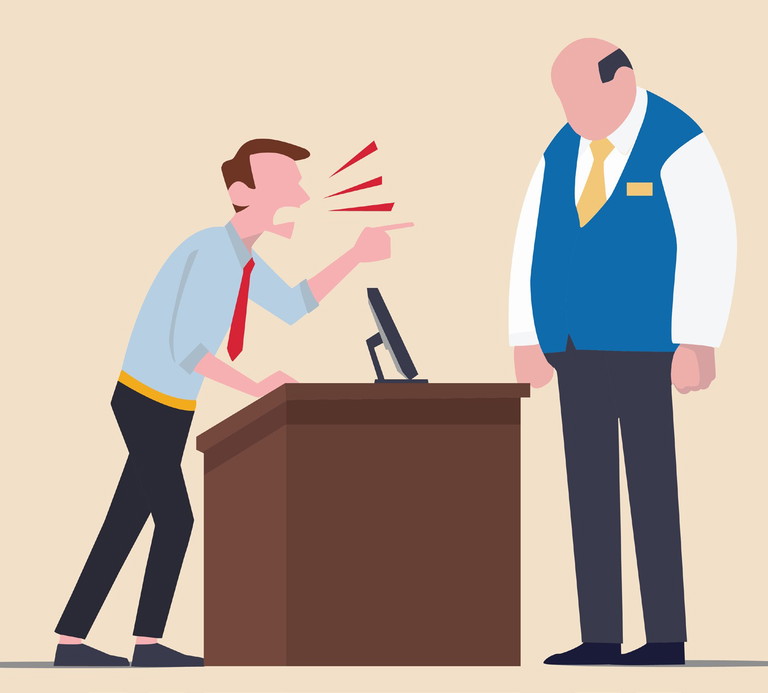mibusiness
Someone Being Rude to You? Don’t Take it Personally
I’ve been in countless rooms where rudeness shows up. Sometimes it’s a colleague cutting you off mid-sentence, other times it’s a customer snapping or mocking you in front of others. In those moments, it’s natural to think: “Did I do something wrong? Did I deserve that?” Almost always, the answer is no.
WRITER Gary Fahey

Rudeness is rarely about you, it’s a projection of what’s going on inside the other person. Once you grasp that, you protect yourself from internalising their chaos and from the very real emotional damage that can follow.
Rudeness isn’t casual, it’s corrosive. Science shows that even a single rude exchange can hijack your brain’s threat response, trigger anxiety, and blunt your ability to think clearly. Over time, repeated exposure can lead to burnout, avoidance, and reduced performance. If you’ve ever found yourself replaying a rude remark hours after it happened, that’s not weakness, that’s your nervous system trying to decode a perceived threat.
WHY PEOPLE ARE RUDE (AND WHY IT’S NOT YOUR FAULT)
After decades of crisis intervention work, I’ve seen the patterns. People lash out for reasons that have nothing to do with you. They might be overwhelmed and emotionally maxed out. They might lack self-awareness or emotional intelligence. They might be hurting, physically, mentally or emotionally. Sometimes they’re trying to assert control out of fear. In some environments, rudeness is just how people have learned to operate. The common thread? Their behaviour says more about their internal instability than it does about your worth.
One of the most difficult situations is when rudeness comes from a senior colleague – someone who holds a higher position, more experience, or greater qualifications. In healthcare and professional environments, hierarchy can make people feel they have the right to speak without respect. It can leave you feeling trapped because challenging them directly may feel risky.
The key here is to separate status from behaviour. Their seniority doesn’t give them permission to erode your dignity. A calm, professional response such as, “I’d like to finish my point” or “I respect your experience, but I need to be able to contribute here as well”, allows you to maintain professionalism while setting boundaries. If the behaviour continues, document the interactions and, if necessary, raise them through proper channels. Respect for qualifications is one thing. Respect for basic humanity is non-negotiable.
HOW TO PROTECT YOURSELF
The most powerful thing you can do is create emotional distance. When someone speaks with contempt, it’s easy to react. But instead of retaliating or retreating, try observing. Slow your breathing. Ground your body, both feet on the floor, shoulders relaxed. Use open body language. Strategic silence can be more effective than a sharp reply. If you do respond, something as simple as: “I’m not sure that tone is helpful right now”, can help bring the conversation back to a professional space. You’re not trying to win the moment. You’re trying to preserve your energy.
WHEN RUDENESS BECOMES TOXIC
Occasional rudeness is unpleasant. Ongoing rudeness is a red flag. If a colleague or customer is constantly making you feel small, silencing your voice, or triggering anxiety, that’s not just personality conflict, that’s emotional abuse. In those cases, boundaries become critical. It may mean raising the issue with management, seeking support, or in some cases, removing yourself from the environment. Your nervous system is designed to protect you, not keep you in permanent survival mode.
FINAL THOUGHT
You are not responsible for fixing rude people. You are responsible for protecting yourself. The strongest people I’ve worked with aren’t the ones who fight fire with fire. They’re the ones who remain calm, stay grounded, and move forward without carrying someone else’s baggage. The next time rudeness shows up, remember: it’s not a reflection of your value. It’s a reflection of their storm. Don’t let it become yours.
Gary Fahey is a former high-ranking officer with the Australian Federal Police, now one of the country’s most in-demand crisis intervention specialists and workplace performance experts. After experiencing his own highly publicised breakdown, he founded a respected consultancy to help individuals and organisations navigate stress, high performance, and personal resilience.
Today, he works with leaders across a broad range of industries to prevent burnout and restore performance and life balance. His clients include CEOs, athletes, first responders, health professionals, entrepreneurs, and everyday Australians committed to taking back control of their lives. Visit: garyfahey.com.